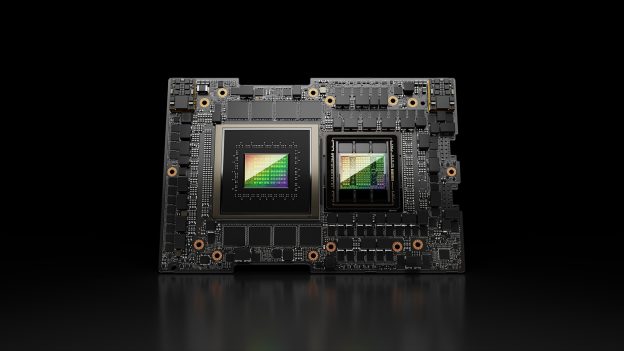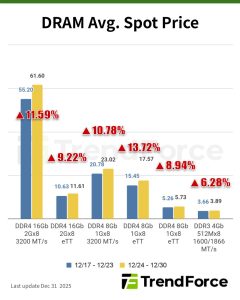Popular Keywords
- About Us
-
Research Report
Research Directory
Semiconductors
LED
Consumer Electronics
Emerging Technologies
- Selected Topics
- Membership
- Price Trends
- Press Center
- News
- Events
- Contact Us
- AI Agent
About TrendForce News
TrendForce News operates independently from our research team, curating key semiconductor and tech updates to support timely, informed decisions.
- Home
- News
[News] U.S. Lawmaker Set to Propose Bill Mandating Location Tracking of NVIDIA Chips to Curb Smuggling into China

U.S. Representative Bill Foster is preparing to introduce legislation in the coming weeks that would require verification of the final destination of AI chips, such as those made by NVIDIA, according to Reuters. The measure aims to address the widespread smuggling of these chips into China in violation of U.S. export control laws.
Foster states that the technology to track AI chips after sale already exists and is largely embedded in NVIDIA’s products. He plans to propose the legislation to help close enforcement gaps in the coming weeks, as the report indicates.
As highlighted in the report, Foster warns that credible evidence—some still undisclosed—suggests large-scale chip smuggling is already taking place.
The bill Foster plans to introduce would focus on two main areas: verifying that chips remain in authorized locations under export control licenses, and preventing them from operating if not properly licensed, the report adds.
The report notes that while not yet widely implemented, the technology to verify chip locations is already available. Sources say Alphabet’s Google, for example, monitors the whereabouts of its in-house AI chips and others across its extensive data center network for security reasons.
Foster’s second legislative aim—blocking AI chips from powering up without proper U.S. export licenses—would be more technically challenging than location tracking. However, he emphasized that it’s time to start addressing both issues, according to the report.
The proposed legislation would give the U.S. Department of Commerce a six-month window to develop regulations mandating the use of this technology, the report states.
The rise of China’s DeepSeek has heightened concerns over chip smuggling. In March, Reuters reported a USD 390 million case in which Singapore prosecutors charged three men for deceiving Dell and Super Micro by falsifying the declared destinations of servers.
The tracking mandate could establish a new technical and compliance framework, potentially impacting how semiconductor companies design their chips and manage global supply chains, as noted by Tech in Asia.
Read more
- [News] Malaysia Reportedly to Monitor NVIDIA AI Chip Shipments Amid U.S. Concerns Over Transfers to China
- [News] NVIDIA Reportedly Developing New Chip for China After H20 Restrictions, with Samples Expected by June
(Photo credit: NVIDIA)





